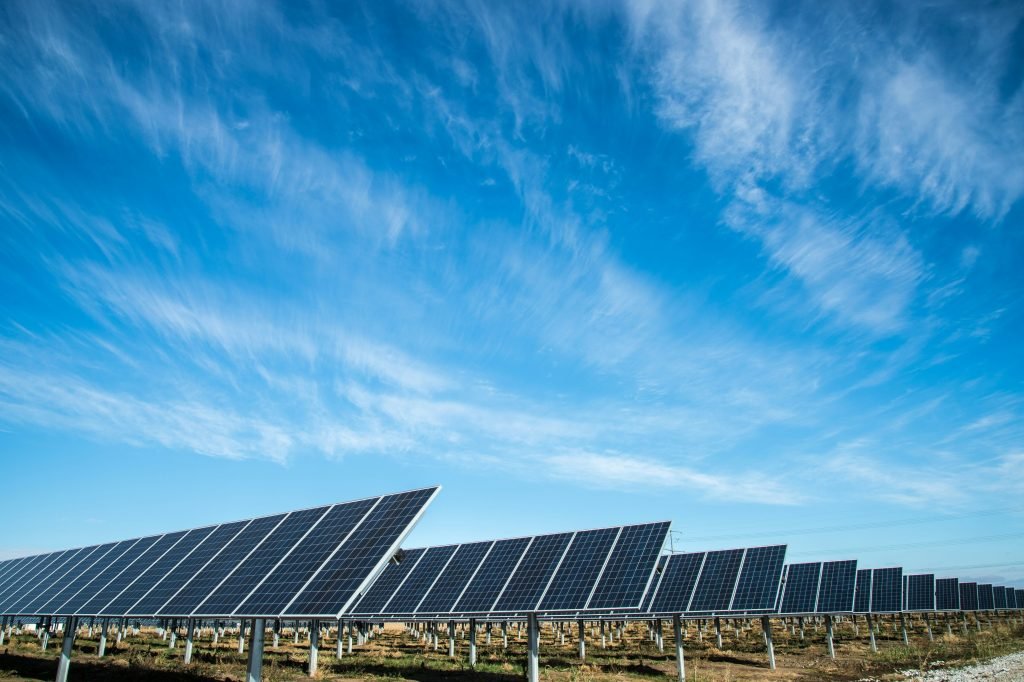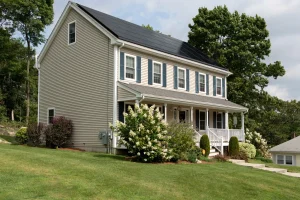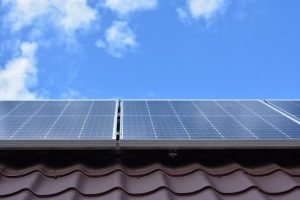Introduction:
In the quest for sustainable living solutions, mobile homeowners are increasingly turning to solar panels as their go-to energy source. With the promise of energy independence and environmental responsibility, solar panels have become the cornerstone of a greener future on the move. In this guide, we delve into the world of solar panels for mobile homes, unlocking the potential of free energy and paving the way towards a brighter, more sustainable lifestyle.
Solar Panels for Mobile Homes Performance and Selection
When considering solar panels for your mobile home, it’s essential to understand their performance capabilities and how to choose the right ones for your specific needs. Solar panel performance is determined by various factors such as efficiency, size, durability, and cost. Additionally, you’ll need to consider factors like the amount of sunlight your location receives, your energy consumption requirements, and your budget constraints when selecting solar panels for your mobile home. In this section, we’ll explore the key aspects of solar panel performance and provide guidance on how to choose the best solar panels for your mobile home.
Solar Panels for Mobile Homes Installation and Layout
When it comes to installing solar panels on your mobile home, proper layout and positioning are crucial for optimal performance. Here are some key considerations:
- Roof Space: Assess the available roof space on your mobile home to determine the number and size of solar panels you can install. Ensure that there are no obstructions such as vents, antennas, or skylights that could interfere with the solar panel layout.
- Orientation: Solar panels should ideally face south in the northern hemisphere or north in the southern hemisphere to maximize sun exposure throughout the day. However, east or west-facing installations can also be effective depending on your location and energy needs.
- Tilt Angle: The tilt angle of the solar panels plays a significant role in optimizing energy production. In general, the tilt angle should be set to match your latitude to capture the maximum amount of sunlight. Adjustable mounting systems can help optimize the tilt angle based on seasonal changes.
- Shading: Avoid shading from nearby trees, buildings, or other obstructions that could reduce the efficiency of your solar panels. Conduct a shade analysis to identify potential shading issues throughout the day and year.
- Mounting System: Choose a robust and durable mounting system that can withstand the rigors of mobile home travel and varying weather conditions. Roof-mounted, ground-mounted, or pole-mounted systems are common options depending on your preferences and available space.
- Wiring and Connections: Plan the wiring layout and connections carefully to ensure efficient energy transfer from the solar panels to your mobile home’s electrical system. Use high-quality cables, connectors, and junction boxes to minimize energy losses and ensure safety.
By carefully planning the installation and layout of your solar panels, you can maximize their energy production and harness the full potential of solar power for your mobile home. Consider consulting with a professional solar installer to ensure a safe and efficient installation process.
Economic Costs and Return on Investment
When considering solar panels for your mobile home, it’s essential to evaluate the economic costs and potential return on investment (ROI). Here are some key factors to consider:
- Initial Investment: The upfront cost of purchasing and installing solar panels can vary depending on factors such as the size of your system, the type of panels chosen, and any additional equipment needed for installation.
- Financial Incentives: Explore available financial incentives and rebates offered by federal, state, or local governments, as well as utility companies. These incentives can help offset the initial cost of solar panel installation and improve the overall ROI.
- Energy Savings: Solar panels can significantly reduce or even eliminate your monthly electricity bills by generating clean, renewable energy from the sun. Calculate potential energy savings based on your current electricity usage and the expected output of your solar panel system.
- Return on Investment (ROI): Determine the payback period for your solar panel investment by comparing the upfront costs with the expected energy savings over time. A shorter payback period indicates a higher ROI and greater financial benefits.
- Long-Term Benefits: Beyond immediate energy savings, consider the long-term benefits of solar panel ownership, such as protection against future energy price increases and increased property value for your mobile home.
- Financing Options: Explore financing options such as solar loans, leases, or power purchase agreements (PPAs) to spread out the upfront costs of solar panel installation. Evaluate the terms and conditions of each financing option to determine the most cost-effective solution for your situation.
By carefully assessing the economic costs and potential ROI of solar panel installation for your mobile home, you can make an informed decision that aligns with your financial goals and contributes to a more sustainable future.
Environmental Benefits
Choosing solar panels for your mobile home offers significant environmental benefits that contribute to a greener and more sustainable future. Here are some key advantages:
- Reduced Carbon Emissions: Solar panels generate electricity by harnessing the power of sunlight, a clean and renewable energy source. By using solar energy instead of fossil fuels, you can significantly reduce your carbon footprint and help combat climate change.
- Clean Energy Production: Unlike traditional energy sources such as coal, oil, and natural gas, solar energy production does not release harmful pollutants or greenhouse gases into the atmosphere. This helps improve air quality and protects public health.
- Conservation of Natural Resources: Solar energy is abundant and freely available, making it a renewable resource that does not deplete finite natural resources like fossil fuels. By relying on solar power, you can help conserve precious resources for future generations.
- Mitigation of Environmental Impact: The extraction, processing, and combustion of fossil fuels for energy production have significant environmental impacts, including habitat destruction, water pollution, and soil degradation. By transitioning to solar energy, you can minimize these negative environmental effects and promote ecosystem health.
- Promotion of Sustainable Practices: Embracing solar energy for your mobile home demonstrates a commitment to sustainable living practices and environmental stewardship. By leading by example, you can inspire others to adopt clean energy solutions and contribute to a more sustainable society.
Overall, the environmental benefits of solar panels for mobile homes extend far beyond individual households, helping to create a cleaner, healthier, and more sustainable planet for future generations.
Practical Application Examples
Exploring real-world examples of solar panel installations on mobile homes can provide valuable insights into the feasibility and benefits of adopting solar energy. Here are some practical application examples:
- Off-Grid Living: Many mobile homeowners choose to live off-grid, relying solely on solar panels to meet their energy needs. These off-grid mobile homes are equipped with solar panels, batteries for energy storage, and energy-efficient appliances, allowing residents to enjoy self-sufficiency and independence from traditional utilities.
- RV and Camper Van Conversions: Solar panels are a popular choice for RV and camper van owners looking to power their vehicles while traveling or camping off-grid. Solar panels mounted on the roof of the vehicle can charge auxiliary batteries, providing electricity for lights, appliances, and electronic devices without the need for external power sources.
- Tiny Homes: Solar panels are often incorporated into the design of tiny homes to provide sustainable and affordable energy solutions. With limited space and resources, tiny homeowners can maximize the use of solar energy to power their homes, reducing their environmental impact and operating costs.
- Mobile Workshops and Studios: Artists, craftsmen, and entrepreneurs who operate mobile workshops or studios can benefit from solar panels to power their equipment and tools. By harnessing solar energy, these mobile businesses can operate efficiently and sustainably while minimizing their carbon footprint.
- Emergency Preparedness: Solar panels on mobile homes serve as a reliable backup power source during emergencies or natural disasters. With grid outages or disruptions, solar-powered mobile homes can maintain essential functions such as lighting, communication, and refrigeration, ensuring the safety and comfort of residents.
These practical application examples demonstrate the versatility and effectiveness of solar panels for mobile homes across various lifestyles and situations. Whether for off-grid living, travel, or emergency preparedness, solar energy offers a sustainable and reliable solution for mobile homeowners.
Conclusion
In conclusion, solar panels offer a compelling solution for powering mobile homes sustainably and efficiently. By harnessing the abundant energy of the sun, mobile homeowners can enjoy energy independence, reduce their carbon footprint, and contribute to a cleaner environment.
Throughout this guide, we’ve explored the performance, installation, economic costs, environmental benefits, and practical applications of solar panels for mobile homes. From off-grid living to RV travel and emergency preparedness, solar energy presents versatile solutions for powering mobile lifestyles.
As the world continues to embrace renewable energy technologies, solar panels have emerged as a practical and accessible option for mobile homeowners seeking to live more sustainably. By investing in solar energy, you’re not only reducing your reliance on fossil fuels but also taking a proactive step towards a greener and more resilient future.
So, whether you’re looking to reduce your energy bills, minimize your environmental impact, or simply enjoy the freedom of off-grid living, solar panels for mobile homes offer a bright and promising path forward. Embrace solar power and unlock the potential for a cleaner, more sustainable lifestyle on the move.




